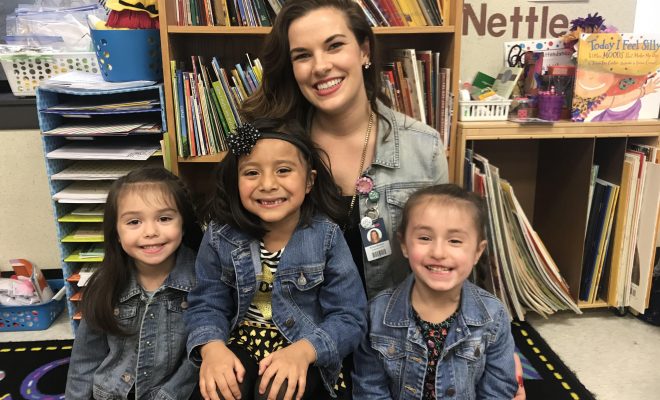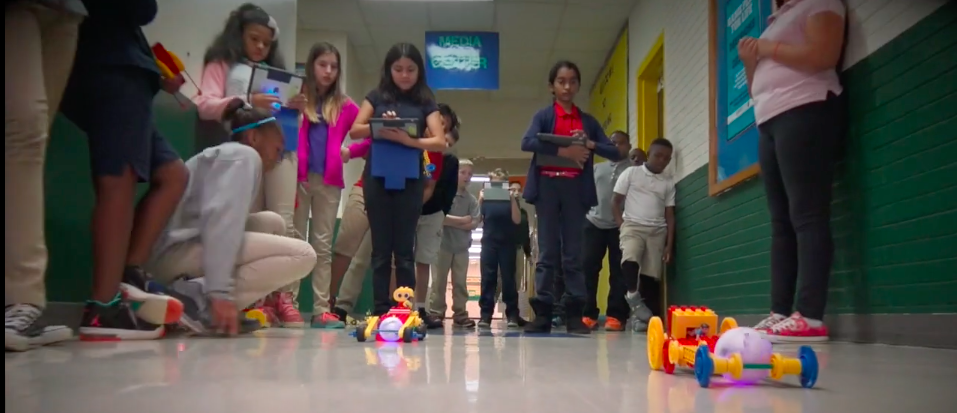5 Keys to Fostering Independent Learning

From spotting bias to connecting learning with the world outside the classroom, these classroom practices will help students ‘learn how to learn.’
By Dennis Pierce
In too many K-12 classrooms, students are still being spoon-fed information. But this outdated approach to instruction doesn’t teach them to become independent learners and problem solvers.
Why is this distinction important? The test-centered courses tend to rely on a “sit and get” approach, which “stifles students’ curiosity,” says Matthew Jaskol, founder of Pioneer Academics, which offers high school students the opportunity to collaborate with college professors on original research. “If students don’t feel free to explore and take risks, that’s not a very healthy environment for learning.”
“The spoon-feeding has to stop,” agrees Alan November, founder of the education consulting firm November Learning. “It does not elicit awe and wonder.”
Simply imparting information not only fails to engage students, it also leaves them unprepared to navigate a world in which the problems don’t have nice, neat solutions. Rather than giving students information, educators should be giving them the tools and skills they’ll need to learn, think critically, and solve problems on their own, these experts argue.
Fostering independent learning prepares students more effectively for the rigors of college and 21st century careers. It helps them participate in a democratic society, and it ensures that students will continue learning long after they graduate.
Here are five keys to fostering independent learning among students.
1) Students must learn how to find and assess the quality of information.
Fostering independent learning begins by teaching students how to find the answers to questions for themselves. “Priority No. 1 is getting the right information at the right time,” November says. “If you don’t have the right information, it doesn’t matter that you’re doing critical thinking, because you’re thinking about the wrong things.”
Students should learn how to perform sophisticated web searches using Google search operators such as “site” and “filetype” to narrow their queries to specific domains or file types, November says. Students also must learn how to research a topic using multiple sources, and they must understand how to critically evaluate the information they find.
Jaskol describes how the students working on independent research projects learn how to use critical thinking skills to uncover any bias or flaws in logic. “Students learn not to take everything they read as the truth,” he says. “When a professor shows them the flaws or bias that might exist in a paper they find online, it’s an inspiring experience. Students learn to read with their own critical judgment—which is invaluable to becoming a lifelong learner.”
2) Students must learn how to develop new lines of inquiry.
To become independent learners, students must learn how to ask thought-provoking, insightful questions that will take their understanding of a topic to a deeper level. “Teaching students how to ask good questions is critical,” November says. “Many students have never been taught how to develop deeper lines of inquiry.”
One pathway to developing their own lines of inquiry is through research. Here, Jaskol offers a note of caution about the difference between conducting students’ own research and getting involved in others’ research projects or following a formatted research project. Though there is no better or worse experience in learning, these two kinds of effort develop different skills. The deeper lines of inquiry are best developed through following students’ own ideas, while the latter helps the students exercise the foundations of research techniques.
The step where rich nutrients dwell for students’ learning is picking a research topic. Students doing original research through Pioneer Academics learn how to narrow down a topic by asking probing questions that help focus their research, Jaskol says. For instance, Karalee Corley, a Pioneer student from Florida was enthusiastic about anthropology linguistics. She had an idea she wanted to delve into, but had difficulty pinpointing a topic for her paper. Her professor brainstormed with her on different directions, such as language and day-to-day conversations, language and marketing, and language and the workplace. He guided her to come up with 50 different questions for each direction. He then asked her to develop deeper lines of inquiry by following the way she raised those questions, observing the environment, and seeking the inspiration for her paper topic. These inquiry skills made a remarkable difference: after brainstorming with her professor, she spotted a pattern in the way female students adjusted their vocabulary when there were male students around, leading to her paper, entitled “Women’s Language Perpetuates Stereotypes.”
When it comes to developing lines of inquiry, November pointed to the Right Question Institute as an invaluable resource. The organization has developed a framework for helping students learn to develop new lines of inquiry by asking more sophisticated questions about what they are learning.
3) Students must learn how to collaborate and learn from others.
Becoming an independent learner also requires understanding how to work with—and learn from—each other. We don’t just learn from books and the internet; we also learn by communicating with our peers and with experts in the field. Students should learn how to collaborate with others and cultivate a personal learning network of peers and experts whom they can turn to for advice and support.
Jaskol predicts that, with world development turning everyone into a global citizen, peer learning and cross-cultural mindfulness will be key to individual success. The future will definitely favor those who can understand, communicate with, and team up with others in their network. This is the reason why Pioneer holds peer-learning sessions where scholars are obligated to learn about their peers’ research topics and offer feedback to each other.
As an example of the power of a global peer network, November cites Olivia Van Ledtje, who—at age nine—already had a global following on Twitter. Olivia records a video blog called LivBits in which she shares information about the books she has read and her observations about life. With the help of her mother, who is an educator herself, Liv is using social media to expand her worldview, learn from other experts, and even connect with people she admires. “Every kid should have a global network like Liv,” November says.
4) Teachers must learn to shift their roles.
Fostering independent learners requires a shift in the habits and culture of the classroom. It also requires teachers to give up some degree of control over the flow of information.
For example, Jaskol sees a fine line between answering students’ questions and challenging students to find the answers for themselves. Rather than bailing them out if they hit a snag in their research, he says, “the faculty should guide them towards further inspiration.”
5) Teachers should challenge students with authentic problems and open-ended questions.
With standardized tests increasingly dominating students’ academic lives, it is becoming a norm that most of the problems presented to students are perceived to have a right or wrong answer, Jaskol says. But that’s not how the problems students will encounter in the “real world” take shape. When students are challenged to explore open-ended questions that have some real-world relevance, they develop the skills and habits they’ll need to take on challenges in their lives—and their passion for learning is ignited.
November agrees. “If you’re solving for X, it’s just not interesting,” he says. “You’re pumping through a formula. But if you’re applying algebra to design a prosthetic for a child whose family can’t afford one, and you’ve got a 3D printer so you can create one for that child yourself, then it makes sense to study algebra.”
Dennis Pierce is a freelance writer who has been covering education for more than 20 years. He can be reached at [email protected].





